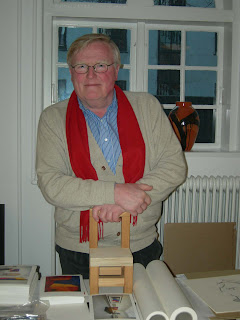This is very much the political strategy of the current government in Denmark, with The Liberals (V) and The Conservatives (C) basing their almost permanent majority in the parliament on The Danish People's Party (O). Three different colours. Three different flavours. In unison they offer the Danish electorate choices - within the same block. The blue block. In short, and speaking in political science terms, they have broken the Public Choice code of the bundle purchase nature with voters. You see, when voters 'buy' a political party, they're not only buying one political opinion - but a bundle of them, wrapped up inside a full political programme of that particular party - so it actually makes sense to stay ignorant of most issues. It is rational to be ignorant. Sorry, Public Choicers, for the next very crude ice cream simplification. Why don't you enjoy a couple of scoops as it folds out...
The current government makes it easy for the voters to choose and 'buy'. You see, if you cut the 'Rainbow Ice' block, you can do so from two different angles - and still get three different colours and flavours. The blue block offers three different choices in one block - seen from more than one perspective.
The first perspective is the low income - middle income - high income axis - very important from an identification point of view - where the voters identify themselves with:
- Low income - The Danish People's Party
- Middle/high income - The Liberals
- Middle/high income - The Conservatives
- Change - The Liberals
- Stability - The Conservatives
- Safety/value - The Danish People's Party
All in all an unbeatable bundle purchase package. A little something for everyone. Three clearly defined chunks of ice cream. If you choose one, the other chunks complement it. And the total package is still there for the taking. Perhaps this is why the blue block does so well? So how does the opposition alternative look? On the first axis of low income - middle income - high income:
- Low/middle income - The Social Democrats
- Low/middle income - The Socialist People's Party
- Middle/high income - The Social Liberals
- Change/value - The Socialist People's Party
- Change/value - The Social Liberals
- Stability/safety - The Social Democrats
























